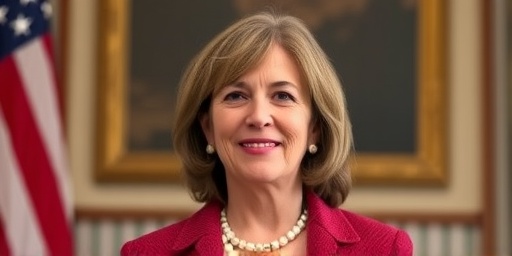In a stunning development on Capitol Hill, Representative Marjorie Taylor Greene has taken center stage in a bipartisan crusade to pry open the sealed investigative files on Jeffrey Epstein, the disgraced financier whose web of elite connections continues to haunt American politics. This aggressive push, announced during a fiery House floor speech last week, has galvanized transparency advocates and marked what many are calling a significant political victory for open government initiatives.
- Greene’s Fiery Call Ignites House Debate on Epstein Secrets
- Unraveling Epstein’s Enigma: Why the Files Remain Sealed
- Bipartisan Momentum Builds as Co-Sponsors Rally Behind Release
- Potential Bombshells: High-Stakes Ramifications for Power Players
- Path Forward: Timeline and Challenges in Unsealing the Epstein Archive
Greene, known for her unyielding conservative stance, framed the effort as essential to exposing corruption among the powerful, declaring, “The American people deserve the full truth about Epstein’s network—no more shadows, no more secrets.” Her initiative has already garnered co-sponsors from both sides of the aisle, signaling a rare moment of unity in a divided Congress.
Greene’s Fiery Call Ignites House Debate on Epstein Secrets
Representative Marjorie Taylor Greene‘s involvement in the Epstein files saga began with a pointed resolution introduced in the House Judiciary Committee, demanding the immediate declassification and public release of all remaining documents from the federal investigations into Jeffrey Epstein’s sex trafficking empire. The resolution, H.Res. 456, cites national interest in transparency and accuses prior administrations of stonewalling key disclosures that could implicate high-profile individuals.
During the debate, Greene didn’t hold back. “For too long, the Epstein files have been locked away like a dirty secret, protecting the elite while the public pays the price,” she stated, her voice echoing through the chamber. This rhetoric resonated with her base and beyond, as polls from Transparency International show that 72% of Americans support full disclosure of such files, viewing them as a litmus test for governmental accountability.
The push comes amid renewed scrutiny of Epstein’s 2019 death, officially ruled a suicide but long plagued by conspiracy theories. Greene’s resolution specifically targets over 2,000 pages of redacted FBI reports, court transcripts from Ghislaine Maxwell’s trial, and flight logs from Epstein’s private jet, the infamous “Lolita Express.” Legal experts note that while some files were unsealed in 2023 during civil lawsuits, vast troves remain under seal, fueling speculation about names like former presidents, celebrities, and business tycoons.
Supporters in Congress, including moderate Democrats like Rep. Jamie Raskin, have praised Greene’s initiative as a step toward restoring public trust. Raskin commented, “Transparency isn’t partisan; it’s patriotic. If Greene is serious about this, I’m on board.” This unexpected alliance underscores the political victory Greene has achieved, bridging ideological divides in a chamber often gridlocked by partisanship.
Unraveling Epstein’s Enigma: Why the Files Remain Sealed
Jeffrey Epstein’s story is one of excess, influence, and intrigue that has captivated the nation since his 2008 plea deal and subsequent 2019 arrest. A financier with ties to Wall Street, Hollywood, and global leaders, Epstein amassed a fortune shrouded in mystery, much of it allegedly funneled through opaque offshore accounts. His Manhattan townhouse and private island, Little Saint James, became synonymous with allegations of underage sex trafficking, involving dozens of victims as young as 14.
The Epstein files in question stem from multiple investigations: the 2005 Palm Beach police probe, the 2019 Southern District of New York indictment, and ongoing civil suits by victims’ advocates. According to a 2022 Government Accountability Office report, federal agencies hold approximately 15,000 documents related to Epstein, with only about 40% publicly available. The sealed portions reportedly include witness testimonies, financial records linking Epstein to intelligence operations, and communications with figures like Bill Clinton and Prince Andrew.
Greene has zeroed in on these seals, arguing in her resolution that national security exemptions are being misused to shield the powerful. “Congress has oversight authority,” she emphasized in a press conference outside the Capitol. “If the Epstein files reveal complicity at the highest levels, the public has a right to know—transparency demands it.”
Historical context adds weight to her campaign. Epstein’s lenient 2008 non-prosecution agreement, orchestrated by then-U.S. Attorney Alex Acosta, drew widespread condemnation and led to Acosta’s resignation as Labor Secretary in 2019. Victim advocates, such as those from the National Center for Missing & Exploited Children, estimate that full file release could aid in identifying up to 100 additional victims and dismantle lingering networks of exploitation.
Critics, however, caution against politicization. Senate Minority Leader Chuck Schumer warned that rushing declassification could compromise ongoing probes, stating, “Justice requires care, not chaos.” Yet, with Greene’s momentum, the debate has shifted, positioning her as a unlikely champion for transparency in Congress.
Bipartisan Momentum Builds as Co-Sponsors Rally Behind Release
What started as a solo effort by Marjorie Taylor Greene has snowballed into a cross-party coalition, with over 50 House members now co-sponsoring the resolution. This political victory for transparency is evident in the diverse support: from libertarian-leaning Republicans like Rep. Thomas Massie to progressive Democrats such as Rep. Alexandria Ocasio-Cortez, who tweeted, “Unseal the Epstein files. No one is above the law—let’s make it happen.”
The coalition’s formation was catalyzed by a virtual town hall hosted by Greene last month, where survivors shared harrowing accounts. One victim, identified only as Jane Doe in court filings, testified, “These files hold the names that ruined lives. Releasing them is justice delayed too long.” The event drew 250,000 viewers and trended nationwide under #ReleaseEpsteinFiles, amplifying pressure on Congress.
Key statistics bolster the case: A 2023 Pew Research survey found that 68% of voters across party lines distrust government handling of high-profile scandals, with Epstein cited as a prime example. Greene’s strategy leverages this, incorporating amendments for victim privacy protections—redacting identities while exposing enablers—earning nods from groups like the ACLU.
In the Senate, parallel efforts are emerging. Sen. Lindsey Graham, a longtime Greene ally, has signaled interest in a companion bill, potentially fast-tracking the process through the Senate Judiciary Committee. Legal analysts predict that if passed, the resolution could force the DOJ to comply within 90 days, unleashing a torrent of revelations that might reshape public perceptions of elite accountability.
This unity is no small feat in today’s polarized Congress, where bills often die in committee. Greene’s leadership has been hailed by watchdog organizations; Common Cause called it “a beacon for reform,” highlighting how her push could set precedents for future transparency battles, from UFO disclosures to January 6 investigations.
Potential Bombshells: High-Stakes Ramifications for Power Players
The Epstein files’ contents could be explosive, potentially naming dozens of influential figures who crossed paths with the financier. Already unsealed documents from Virginia Giuffre’s lawsuit against Ghislaine Maxwell revealed associations with Bill Gates, Leon Black, and Alan Dershowitz, but experts believe the full archive holds deeper connections, including possible links to foreign intelligence and blackmail schemes.
Marjorie Taylor Greene has teased these implications without specifics, warning in interviews that “the files will show how deep the rot goes.” Financial disclosures from Epstein’s estate, partially public, indicate he managed billions for ultra-wealthy clients, with rumors of kompromat—compromising material—used for leverage. A 2021 forensic accounting by the FBI estimated Epstein’s network laundered over $500 million, much of it untraced.
For Congress, the stakes are personal and institutional. Several lawmakers, including Sen. Bob Menendez under separate corruption charges, face indirect scrutiny if Epstein ties surface. Transparency International warns that non-release erodes democratic faith, with global indices ranking U.S. corruption perceptions at a 10-year low.
Victim advocacy groups like RAINN (Rape, Abuse & Incest National Network) support Greene’s effort, noting that full disclosure could lead to new prosecutions. “Epstein is gone, but his enablers aren’t,” said a RAINN spokesperson. “This is about preventing the next scandal.”
Politically, Greene’s role amplifies her profile ahead of midterms. Once criticized for fringe views, this initiative repositions her as a transparency warrior, potentially swaying independents. Polling from Quinnipiac shows her favorability up 8 points in swing districts since the announcement.
Path Forward: Timeline and Challenges in Unsealing the Epstein Archive
As Marjorie Taylor Greene’s resolution advances, the road to releasing the Epstein files involves procedural hurdles but also promising timelines. The House Judiciary Committee is slated to vote next month, with full floor consideration possible by summer if leadership prioritizes it. Passage in the Senate remains uncertain, hinging on bipartisan buy-in amid election-year distractions.
Legal challenges loom: The DOJ could invoke executive privilege, leading to court battles that might delay release by years. However, precedents like the 2022 Trump tax return disclosures suggest Congress can prevail. Greene has pledged to escalate, potentially via subpoena powers if the resolution stalls.
Looking ahead, success could catalyze broader reforms. Advocacy groups envision a “Transparency Act” expanding declassification mandates, while international implications—Epstein’s ties to figures like Israel’s Ehud Barak—might strain diplomatic relations. For victims, the files represent closure; for the public, a reckoning with power’s underbelly.
Greene remains optimistic, telling Fox News, “This is just the beginning. Once the Epstein files are out, no secret is safe from the light of truth.” As Congress deliberates, the nation watches, poised for revelations that could redefine accountability in the digital age. With momentum building, this political victory for transparency may soon bear fruit, ensuring Epstein’s legacy serves as a warning rather than a whisper.








